Missionary Q&A
Posted October 5, 2011
Brian Beadle has served as an IMB missionary in Botswana for 16 years. He currently lives in the remote town of Maun, where he works closely with Maun Baptist Church. He previously served as a student minister at the University of Botswana in Gaborone and helped plant churches in Lobatse, Nata and Lotlhakana.
What is your educational background?
I went to LSU [Louisiana State University] for six and a half years. I got a degree in business and a degree in law, and then five years later, I went to Dallas Theological Seminary and got an M.A. in Biblical Studies.
Did you ever consider any other course of study?
Nine and a half years is quite enough!
What did you do “pre-Africa”?
I was in law for several years before I went to seminary. During seminary, I worked in law firms to support myself. Then after seminary, basically worked with kids, worked as a youth pastor, and I worked with a big Christian sports camp in southern Missouri for about 10 years – mostly summers, but eventually I worked full time with them.
How did God move in your life to go to Africa? What is your calling?
I was the youth pastor in 1988, 1989 and 1990 in southeastern Pennsylvania, and I kind of grew out of that job. I got tired of getting marshmallows in my hair and peanut butter in my sleeping bag, so I decided to try something else. An organization called me and said they were sending teachers to China and would I be interested in going to China to teach. And I said “No,” but they sent me the info. … By the time it got there, I thought “Why not? You know, what’s a year?” So, I went to China for a year, came back to the States, went back to Branson, Mo., and started to work at the camp again. And I tried to live a normal, Christian life in America, if there is such a thing, and work and a house and all this kind of stuff. After a couple of years, it just seemed like the Lord was saying, “Maybe this missions thing is for you.”
So I left that job. I called the [International Mission] Board first and asked them about their International Service Corps organization, because I sort of pictured myself as sort of being a tourist for Christ – I would do like two years in India and two years in the Sudan and two years in Southern Africa and two years in South America, and just tour for God. So I came here [to Botswana]; my first job was student minister at the University of Botswana. And I didn’t reckon on the fact that I would fall in love with the people, and that I would decide that I would really like to be here.
So, I went home after my two and a half years at the first ISC term, and tried to do the normal, Christian life in the States again, and only lasted about six months. Called the Board again and said, “Do you have anything else on the field?” and they just happened to have a job working with [IMB missionary] Robert Fortenberry in Lobatse [a town in Botswana]. Those guys [on the field] already knew me, and they lied! They said I could speak Setswana; so the Board was like, “Yeah, sure, go back,” so back I came, back to Botswana.
I had told the Board when I went through the career process, because they ask these kinds of questions: “What is your calling? When did it come about? Where did it come from?” I told them I was called to missions while I was on the mission field, because beforehand, I was just doing God’s work, but I was kind of touring, and while I was here [in Botswana], God seemed to be saying, “This is what you need to be doing with your life.” So, after that term, I went career.
What has been your biggest struggle or biggest challenge living on the mission field?
Personally, it’s probably been the aloneness thing, living alone in a small African village with no peers. On a spiritual level or a work level, it may be a lack of response from the people sometimes, but on a personal level, it’s probably the loneliness.
How has it been living in Africa as a single missionary?
It’s been okay when I’m dealing with that situation. I’m fortunate in that there is a bit of an advantage in being alone – you tend to open your home to Africa better and more. Except in Lobatse, I have always lived among the people, and so the national people become your family, in the place of the family members I might be missing.
What advice would you give to singles looking to be on the mission field?
I would advise them to do it, just go ahead and do it. One of the reasons that I came into missions … is just to tell people to get out there and do it. So many of us feel like we have to wait until we’re married before we can live just like the Lord wants us to live, and I don’t think that’s right; I think we need to get out and serve wherever we are, whatever status we are in life. If God blesses us with someone, then He does, but otherwise, we’re where God wants us to be. … So many of my friends when they were single were saying, “I’m just waiting for God to make me the right person and preparing me to do this and teaching me and learning.” Well, that’s all great and good, but I think God does that in the process – as you’re going down the road, God does the work. Sometimes, the situations He allows us to live in are more intense, but better for us, because we don’t have the things of the world and our families and the crutches of our lives to fall back on.
What’s been the greatest joy about living in Africa?
It would have to be the relationships, like sweet agony. One of the neat things about being here is that they tell you at home that it’s all about relationships, and once you get here, you realize it’s true. It’s all about who you know and who you love and who loves you and who’s involved in your life. The relationships with the missionaries are great, but for me, that’s pretty distant. The closest one is 500 kilometers [away]. I have been blessed to have a lot of close relationships with the nationals.
What’s been the greatest blessing about serving God as a single?
It seems like we have the advantage as single people of sinking our lives into people more. The church here, the people here – they are my life. I don’t have a wife or children to come home to and to be consumed, in a good way, by that. I love the married missionaries here; they’re doing great work, but so much of their life has to be their families, and should be. But as single people, we are allowed the privilege of sinking our whole being and our whole life into the people around us, and that’s a terrific advantage.
What has God taught you while serving in Africa?
I have thought of this in relation to music. Probably one of my favorite songs in the old hymnbooks is “Great is Thy Faithfulness,” and God has just proven Himself faithful so many times. When I’m lonely or when I’m hurting, when work’s good or work’s bad, he has just shown himself faithful. That’s a big thing. Last term, I remember preaching a sermon my first week in Lotlhakana, and I preached about [how] we grew in together in the little old church there – we learned about unity and we learned about love. I came out here not knowing a whole lot about love; I figure I’m single, never married, what do I know about all that mushy stuff, but God has shown me in the last three or four years how important it is to love. Otherwise, we’re just wasting our time.
Another thing He taught [me] is it’s not about me – this ministry, this thing we do – it’s not about us. Sometimes Americans are so into their own thing and realizing their own potential, even exercising their spiritual gifts, that we turn it into something all about us. It’s not about me serving the people even here in Maun Baptist Church. It’s about glorifying God’s name, and sometimes God sends people to hard, difficult, even deadly situations because it’s about the glorification of His name.
Talk about some of the opportunities you’ve had to pour His truth into other people’s lives. How have you been able to mentor or give advice to people or churches?
That comes kind of naturally from the position of a pastor. You do a lot of teaching with the people in the church, but probably because of my singleness, I have had the opportunity to have people in my home. These relationships are often informal discipleships or informal mentoring, just being together. Preachers often say that discipleship is not as much witness as “with-ness.” I can fill my house with wonderful young people and be a part of their lives in ways that I couldn’t if God had blessed me with a family.
I have been fortunate through the years to have several “Tswana sons” [the Tswana are the primary people group in Botswana]. Lingani is one, in that he comes here when he has vacations, I help him with his schooling, I’m involved in his life. Lingani didn’t have a relationship with his father. He has a great family, his mom and his brothers and sister, but it was a little bit of a gap that I could fill. He also filled a need in my life – to have a son and have someone to care for. I have relationships with the young men I go camping with, who can go with me and do ministry.
What do you do for fun?
I like to go out in the bush and go camping, sleep with the animals and cook out. I just like the bush. One of the advantages of living in Botswana that I’d never considered was all these fabulous game preserves and camping grounds.
I play the piano a little bit, and I like to work in the yard some.
How do you cope with loneliness?
Read a lot, listen to music, get out of the house. … One of the worst things to do is stay in. I remember writing my mom once when I was in Lotlhakana. My first six weeks, I never had a visitor, and I wrote that I was just so lonely that I walked around the village and did some prayer walking and met some people. God used that to give me contact with an amazing young man who’s now preaching in the church there. My mom wrote back and said, “Maybe we should pray for more loneliness!”
If you’re lonely in a village full of people, it’s your own fault. I know sometimes, because you’re a white American, there may be thousands of people around you, but no peers, but you can do something about it. Walk around the village, meet the guys fishing, talk to the people in the store. It certainly doesn’t help to sit around.
Loneliness is more difficult in the States than it is here. Loneliness here is part of my calling. It’s part of the territory. Somehow, that helps me endure it better.
Is there a particular Scripture you lean on?
Johavo keemoo dee sa wahomie a kee kee kla ko speie. That’s the first verse of the 23rd Psalm: “The Lord is my Shepherd, I shall not want.”
I have always liked Proverbs 3:5 & 6: “Trust in the Lord with all your heart and lean not on your own understanding. In all your ways acknowledge Him and He will direct your steps.”

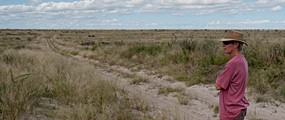

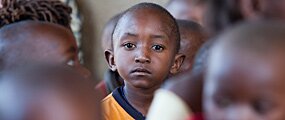
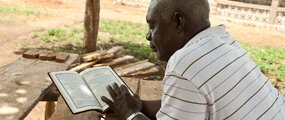


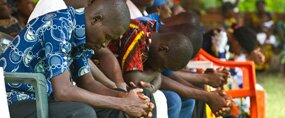
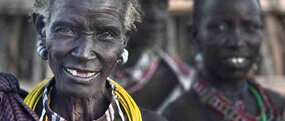
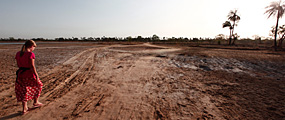
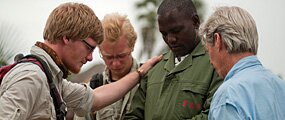

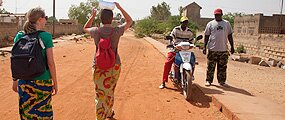
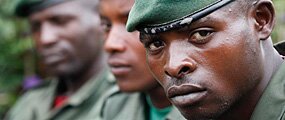
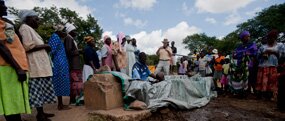
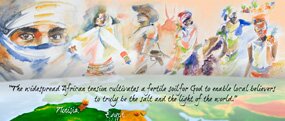

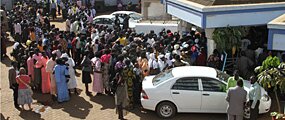



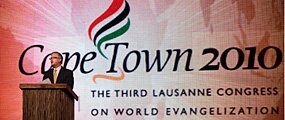
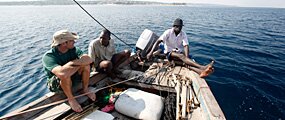
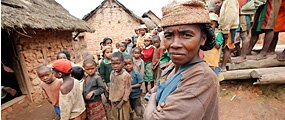

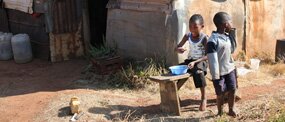
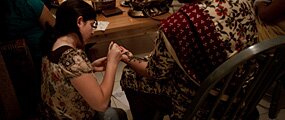
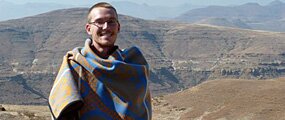



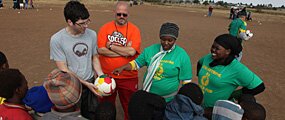

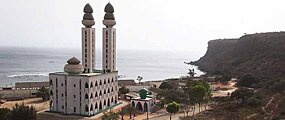
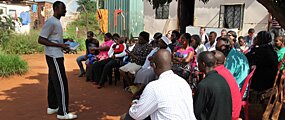

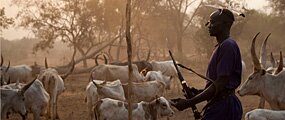

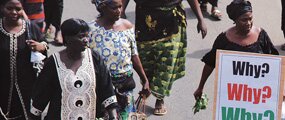
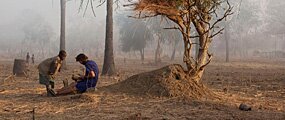
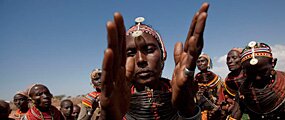

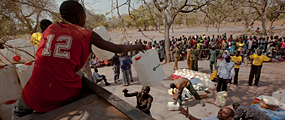
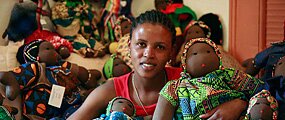
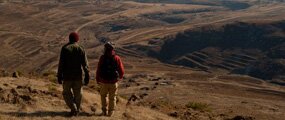
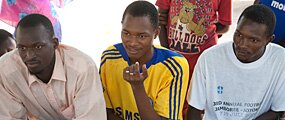
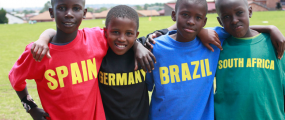
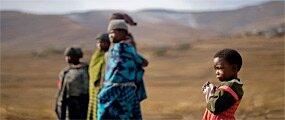

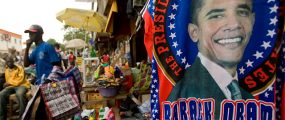
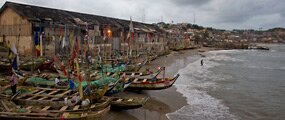

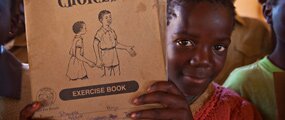









Hey Brian. What a wonderful treat to read all ABOUT YOU and your lilfe in Botswana. My, do we miss Southern Africa! You sound like life has been a wonderful excursion in God’s hands!! We do envy you–your dedication, your patience, and your ability to adjust!! What a testimony. Would love to hear from you!!
Love in Christ, Faye & Furman